XENO
Toxic Topologies
Artifacts from the Future: An experiential Metamuseum
In the past few decades, individuals have experienced dramatic changes in some of the most established dimensions of human life: time, space, matter, and individuality. These changes strain our everyday life and how we interact with the environment bringing us to question and design for how we will live in the future.
Set in 2053, we anticipate a future scenario in which humanity has taken giant strides in the field of science, technology and art. In 2053, we would be investigating life on planets that are unreachable today and curing the deadliest diseases. The global human population is anticipated at 9.7 billion and the 3?C rise in average temperatures would have an immense impact on the climate and rise in sea-levels with Miami, Manhattan and Osaka only existing in virtual reality. Global warming, over-farming to feed the growing population and excessive waste generation would cause the air, water and land to be toxic. Drinking water would be synthesized in laboratories and countries would be on the brink of another world war in the plain desperation for food.
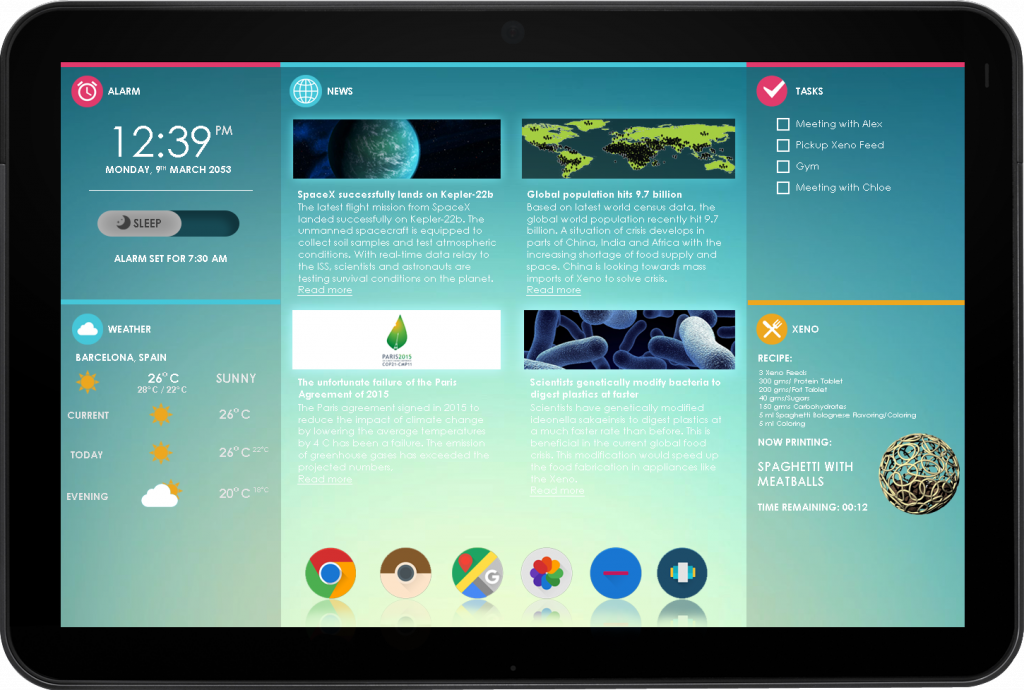
Food shortage and excessive waste generation will have serious implications for the human species by the year 2053. For the first time in human history, food production will be limited at a global scale due to the scarcity of land, water and energy. This project proposes using synthetic biology to create new bacteria to modify our waste into nutritious food.
Introducing XENO: recycle waste and reimagine food!
An artefact from the future, Xeno, uses non-toxic plastics as an input to be disintegrated by genetically modified bacteria ideonella sakaeinsis to form enzymes that are used in the production of food of the future. Nutrients, flavours, colour, texture and aroma is integrated with the enzymes to create customizable food. Xeno is a domestic appliance that can track your dietary needs and tailor your meals accordingly.
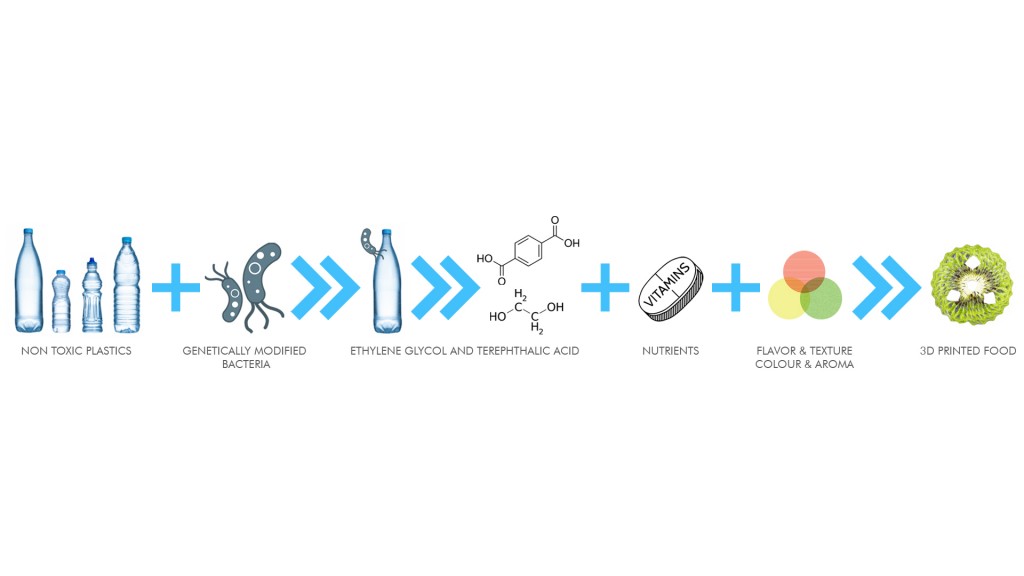
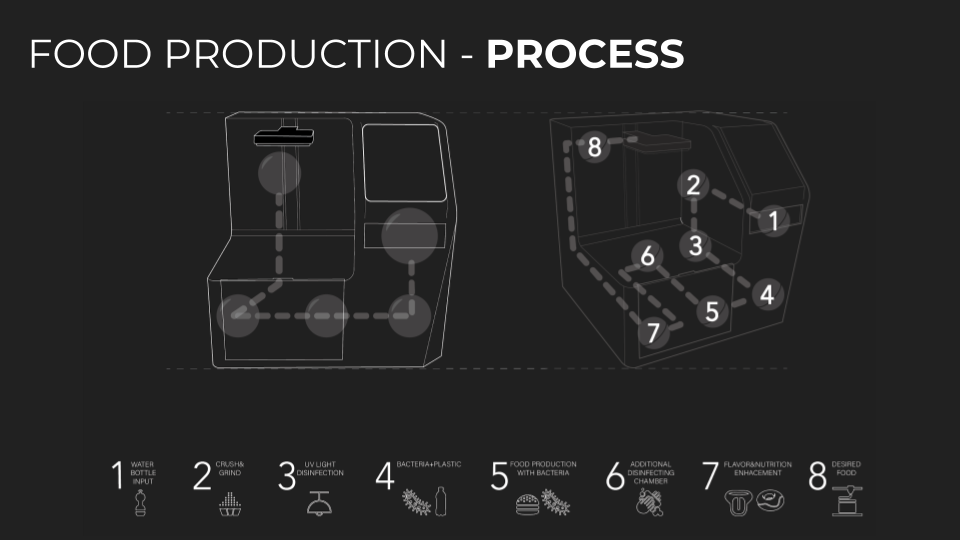
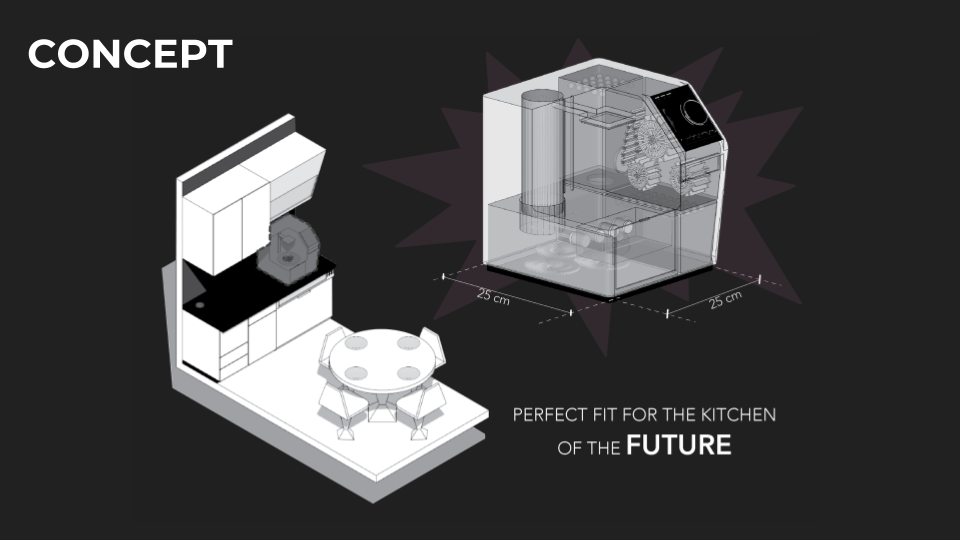
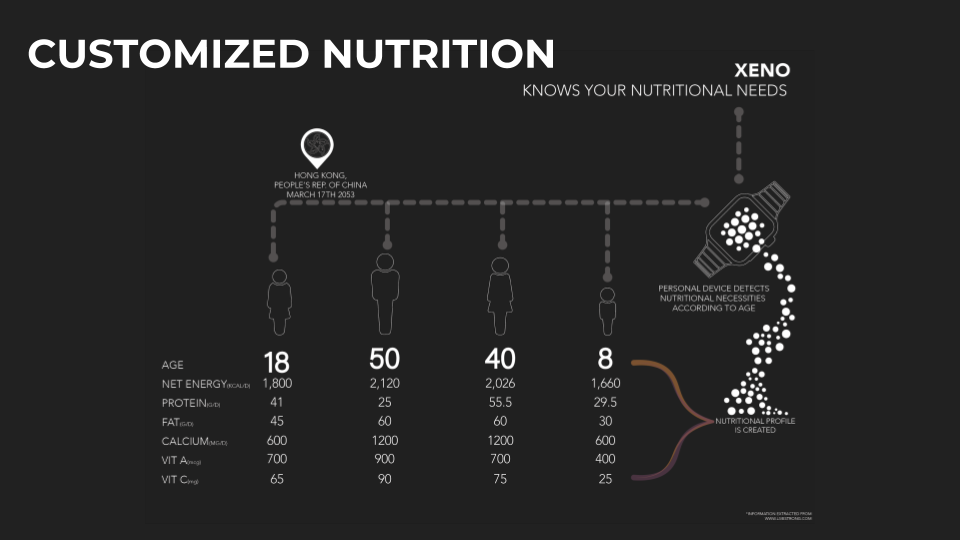
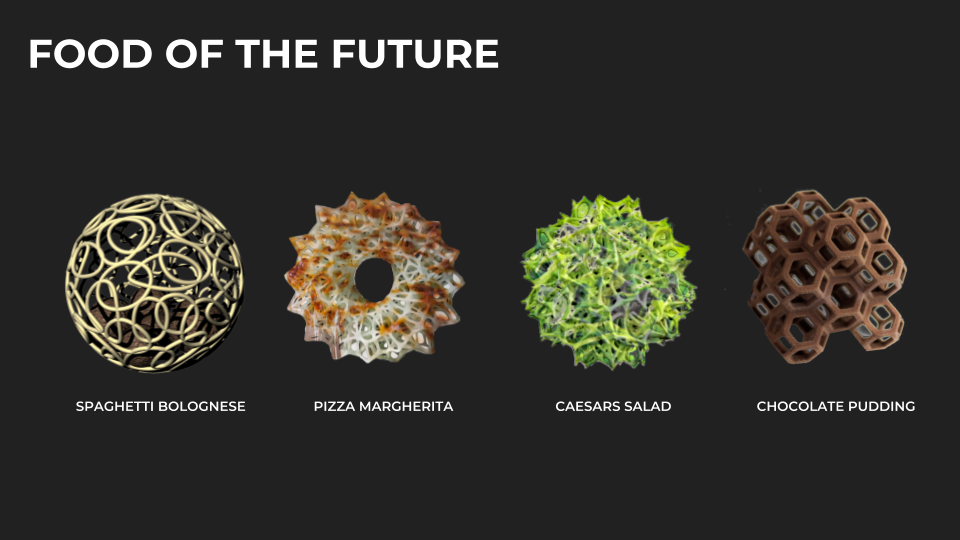
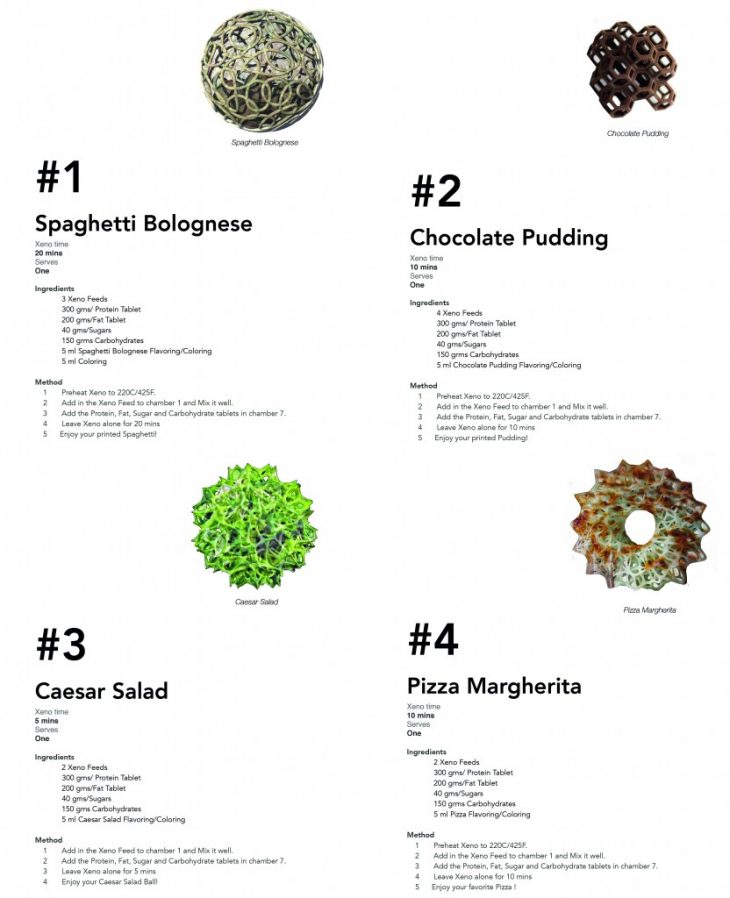
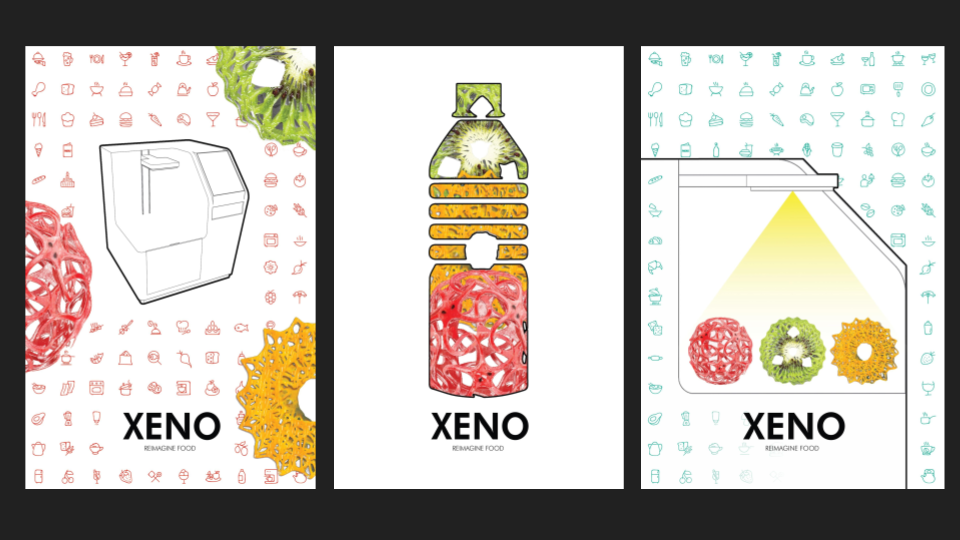
The publicity campaign for Xeno, an artefact from the future.
Developed at: MAA01 2017-2018 Master in Advanced Architecture,
Students: Andrea Champion, Bhakti Vinod Loonawat, Hira Zuberi, Ogulcan Unesi, Umit Ceren Bayazitoglu
Faculty: Mathilde Marengo and Ece Tankal